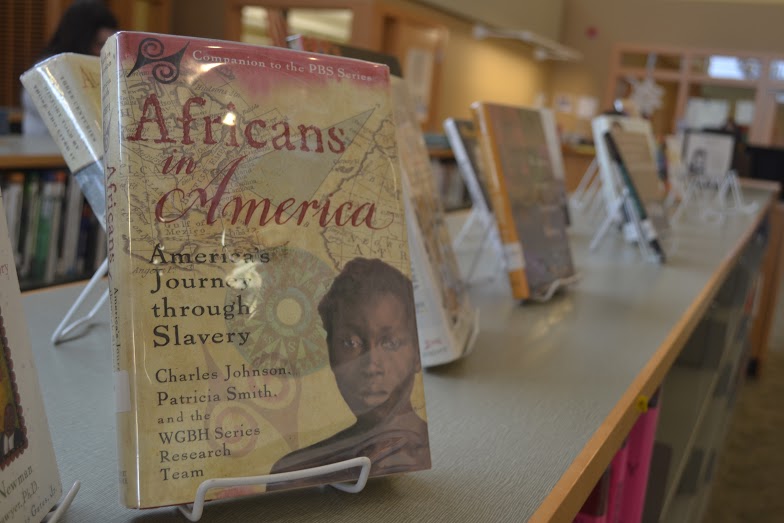Sarah Boone, inventor of the ironing board; Elbert R. Robinson, creator of the electric trolley; Dr. Charles Drew, initiator of the world’s first blood bank; Alexander Miles, inventor of the elevator. These African Americans, among countless others, have notably influenced the lives of each one of us – yet, they often remain unacknowledged for their invaluable contributions. The month of February, which honors the African-American experience, provides us the chance to adequately reflect on how this race has influenced our lives today.
Created by Dr. Carter G. Woodson, an African American figure known for his intellectual contributions, Black History Month has become popular not only among African Americans, but also people of other races and ethnicities. Throughout his education, Woodson noticed that history textbooks rarely mentioned African American history. Deciding to take matters into his own hands, he chose to honor African American individuals by creating Negro History Week in 1926. Negro Week was soon extended into the whole month, and Black History Month was created.
“It’s important to celebrate [events] like Black History Month to really enlighten others about the achievements of all people. The idea is to first to understand other cultures, to understand one another,” said housemaster Mr. Drew Kelton. “We should recognize that people of all races have made wonderful contributions to America, to the world. What this does is break down some of the barriers and stereotypes we have, which will then allow us to build a more compassionate, empathetic world [to] live in. I think it’s really important that we recognize the achievements of [others] because [this] also validates people – it validates existences.”
In addition to celebrating Black History Month to honor the contributions of African Americans, librarian Ms. Amy Fiske reflects on recognizing the struggles for equality and freedom that the people of this race have endured: “I think it’s especially important to pay tribute to the struggle for full citizenship and equal rights – it’s been hugely influential on all other groups that have fought for civil rights in the years since the civil rights movement of the ’50s and ’60s,” she said.
K-12 METCO Director, Ms. Kalise Wornum, acknowledged that in order to celebrate the contributions of African Americans, “we have to celebrate history first. There’s the fact that [Black History Month first] started out as one week and was designed to be unnecessary – to work itself out. In 2015 today – the fact that we still need to celebrate it – to me speaks to some progress, but we have so much more to do. There is a need to celebrate, but I think it’s dangerous. It’s dangerous in that we’re only celebrating the achievements of African Americans one month out of the year. What does that subconsciously tell everyone else, especially young kids? ‘This is the only time you’re relevant, this is the only time you’ve contributed to society, and we’re going to look at this in the shortest month of the year’ – I worry about that. At the same time, it’s a great time to celebrate, investigate, and learn more about African Americans. I have this kind of duality of love and hate with the month.”
During this month, students have taken the opportunity to reflect on African American role models they might have. “If I could choose one particular African American role model, I would choose Oprah Winfrey because her life revolves solely around helping others and putting others needs before her owns,” said Raquelle White ’15. “Oprah Winfrey exemplifies Gandhi’s quote, ‘Be the change that you wish to see in the world,’ teaching others that if one wishes to see a change in the world they must back their words up with their actions.”
History teacher Ms. Jennifer Despo also finds inspiration from one of her African American role models, Maya Angelou: “For me, Maya Angelou represents the ultimate arrival for African Americans in terms of where she started. An interesting fact is that she was the first female trolley driver in San Francisco, but she was also an acclaimed artist and poet, and her work has transcended all generations and demonstrated that she can really speak to so many people about so many things, not just things that touch women or African Americans but [all of] humanity,” she said. “For me, she is someone I always admire and I always think of her work to give me inspiration.”
Wornum also has many African American role models – from her mother to Dr. King – but what she values most about their influence is how they have taught her the importance of studying. “I think that’s the most important thing I could glean from others who have come before me. I have to study where I came from in order to design where I’m going,” she said. One specific African American woman who influenced her is Mary McLeod Bethune, a leading educator and civil rights activist who began schools for African American children during the twentieth century. “Bethune started her first school with a dollar-fifty in her pocket. I remember being nine, having a dollar-fifty, feeling like I could start my own school. For me, personally, she is one of my heroes,” said Wornum.
Throughout this month, Kelton hopes to inspire students and faculty to educate themselves on accomplishments of African Americans. “There are so many wonderful examples of [their contributions],” he said. “At some levels, it’s kind of a shame that it’s only one month. In a school like ours, it should be more embedded into everything we do so that we truly give our students a multicultural experience.”
From celebrating Black History Month, Wornum hopes that others will “learn connection and find themselves reflected in [others], but above all, that they understand interdependence. I hope that people will celebrate and understand [African American] contributions to our society, and they will learn something and find a way to use this month to connect with others.”
(Noor Pirani ’15, Editor-in-Chief)

